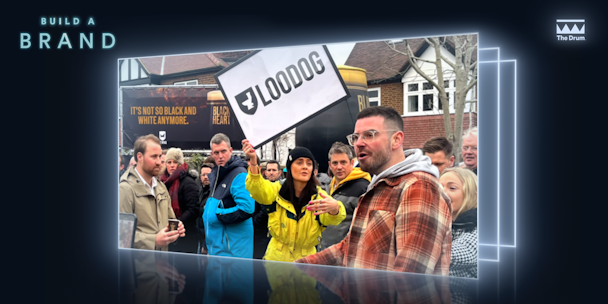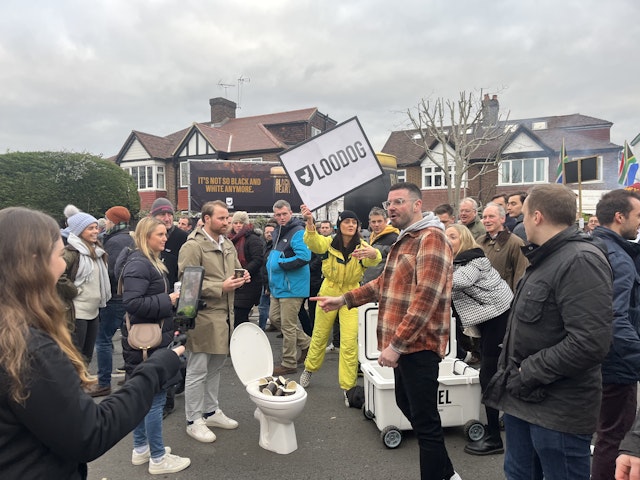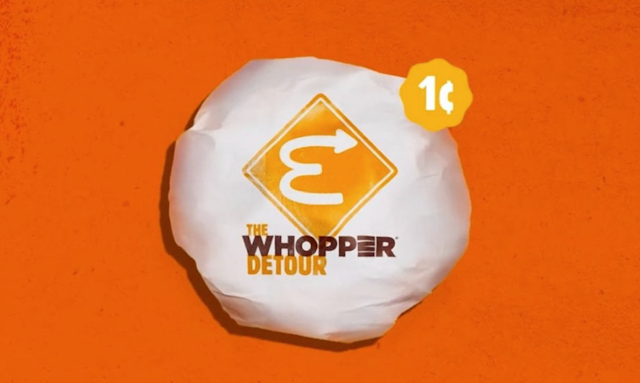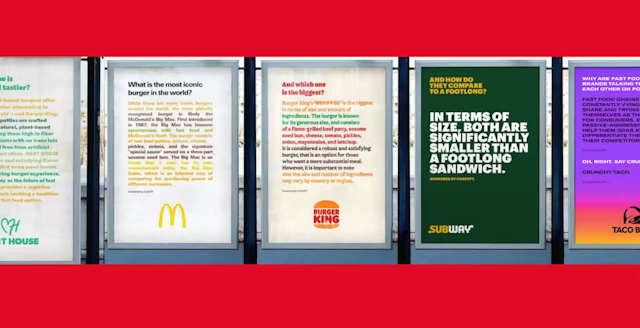Lessons from LooDog and more: How not to fluff your guerilla brand campaign
Guerilla marketing is a great way to grow your brand, especially in overcrowded markets where it’s hard to cut through. But it must be used wisely as it can quickly become gimmicky, here are a few best practices to learn from.

Build a Brand dives into Jubel’s LooDog stunt and more
What does guerilla marketing actually mean? If you take the definition from warfare, Guerilla is a small independent group fighting a bigger organized army. In marketing terms, guerilla tactics are used to stand out amongst more established competitors with bigger budgets.
Ideas can be scrappy using shoestring budgets and often involve smaller challenger brands poking their bigger competitor. For the bigger brands adopting traditional guerilla tactics still means jumping on the competition or stunt-based activations that are out of its typical marketing mix.
Beer brands, the meat-alternative category, and fast-food chains are big users of this type of marketing and hold the secrets to guerilla done well.
Advertisement
Top tips to avoid a flop
-
Ideas work better when they are grounded in something tangible rather than doing a guerilla stunt just for the sake of it.
-
Timing and location are key.
-
It doesn’t break the bank or require a big marketing budget.
-
If the stunt is a success don’t replicate it or scale it.
-
Don’t rely on guerilla as your core strategy this can leave brands looking too gimmicky and can neglect or alienate some audiences.
Top examples worth learning from...
LooDog BrewDog campaign

Peachy lager company Jubel hit back at BrewDog for disrupting one of its campaigns by encouraging rugby fans to chuck cans of BrewDog in a toilet in exchange for a can of Jubel. The idea was generated at the brewer’s monthly ‘beers and brainstorm’ meeting at the pub and a toilet was picked up from a skip on the street. The stunt was pushed organically with posts from Jubel garnering 1.1m LinkedIn views, 35,000 TikTok views and 30,000 Instagram views.
The ‘LooDog’ campaign was reminiscent of early BrewDog guerilla marketing, but this was different as Jubel’s chief exec Jessie Wilson told The Drum: “BrewDog marketing has historically been purely for PR reasons, but our marketing is always product based and trying to find ways to actually get people drinking Jubel”. Finding a creative way to get the cans into people’s hands was the most important element of this campaign.
Advertisement
Burger King trolls McDonald’s with geolocation stunt

Although it's questionable whether Burger King can call itself a challenger brand, this campaign is a great example of when guerilla marketing has a tangible purpose behind it. The stunt relied on mobile geofencing to steer customers away from McDonald's and promote the order-ahead features of Burger King's recently redesigned app. People who went within 600 feet of most McDonald's were given a voucher to buy a Whopper for one cent.
Burger King ran the stunt because it needed to increase app downloads and push people to a sale through the app. During the Whopper Detour campaign, Burger King’s app was downloaded more than 1.5m times, a 37.5% increase in a record nine days.
Suggested newsletters for you
This sponsors the town of Quorn
For its Veganuary marketing stunt, meat alternative This sponsored the English town of Quorn by taking over by embossing its logo on Quorn’s local bingo house, chip shop and pubs. Running alongside the campaign is a 90-second social video from Mental Images showing all the ways This has plastered its branding across the town including beer pumps, missing cat posters and chip shop paper.
Less good attempts at guerrilla marketing...
Fast-food chains ChatGPT trendjacking

Knowing when to stop and being clever not to overdo a stunt is crucial when playing in this space. McDonald’s and Burger King were having a back-and-forth using ChatGPT-created billboards asking which burger is the most iconic and which burger is bigger. But then in chimed three other fast-food chains also jumped on the trend.
System 1 tested the original execution from McDonald’s and Burger King which found consumers didn’t care about the ads as much as the industry and the bandwagon effect all got a bit too much. The Drum’s creative reporter Amy Houston wrote: “Days out from McDonald’s execution, the trend had been done to death. It was a fine piece of trendjacking, and later newsjacking from Burger King. And that should have been that.”
Airbnb’s takeover of the Great Wall of China

As part of its ‘At Night’ campaign, Airbnb promoted a custom-made home in the Great Wall of China. The idea flopped after major backlash from the Chinese public who thought it commercialized and trivialized a part of their identity and heritage. It was also thought that the execution would cause damage to the site. Airbnb decided to drop the campaign. This failed campaign shows the importance of location and cultural context.

